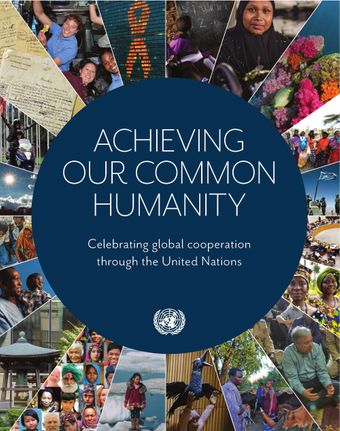- Home
- Books
- Achieving our Common Humanity
- Chapter
The self-determination of all peoples

- Author: United Nations
- Main Title: Achieving our Common Humanity , pp 26-31
- Publication Date: October 2020
- DOI: https://doi.org/10.18356/247be8f6-en
- Language: English
Self-determination—the freedom to choose for oneself—is a key principle of the Charter of the United Nations. When the United Nations was founded in 1945, some 750 million people—nearly one third of the world’s population—lived in Territories that were governed by colonial powers. Today, fewer than 2 million people live in the 17 remaining Non-Self- Governing Territories. As a result of decolonization, many countries gained their independence. As those countries joined the United Nations, membership in the Organization more than tripled from its founding 51 Member States in 1945 to 154 in 1980, when Zimbabwe and Saint Vincent and the Grenadines, respectively, became the 153rd and 154th Member States.
© United Nations
ISBN (PDF):
9789210051491
Book DOI:
https://doi.org/10.18356/6aa29937-en
Related Subject(s):
United Nations
Sustainable Development Goals:
-
From This Site
/content/books/9789210051491c006dcterms_title,dcterms_subject,pub_keyword-contentType:Journal -contentType:Contributor -contentType:Concept -contentType:Institution105
/content/books/9789210051491c006
dcterms_title,dcterms_subject,pub_keyword
-contentType:Journal -contentType:Contributor -contentType:Concept -contentType:Institution
10
5

